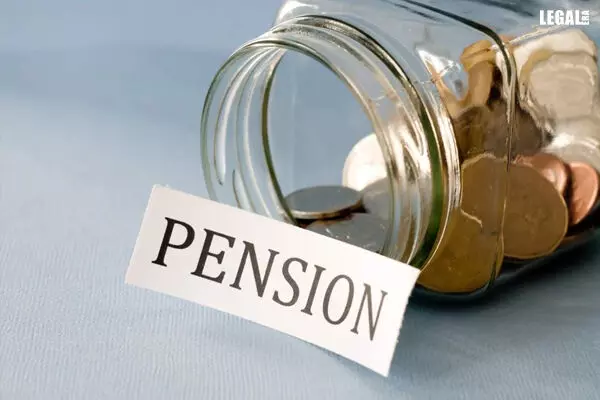- Home
- News
- Articles+
- Aerospace
- AI
- Agriculture
- Alternate Dispute Resolution
- Arbitration & Mediation
- Banking and Finance
- Bankruptcy
- Book Review
- Bribery & Corruption
- Commercial Litigation
- Competition Law
- Conference Reports
- Consumer Products
- Contract
- Corporate Governance
- Corporate Law
- Covid-19
- Cryptocurrency
- Cybersecurity
- Data Protection
- Defence
- Digital Economy
- E-commerce
- Employment Law
- Energy and Natural Resources
- Entertainment and Sports Law
- Environmental Law
- ESG
- FDI
- Food and Beverage
- Gaming
- Health Care
- IBC Diaries
- In Focus
- Inclusion & Diversity
- Insurance Law
- Intellectual Property
- International Law
- IP & Tech Era
- Know the Law
- Labour Laws
- Law & Policy and Regulation
- Litigation
- Litigation Funding
- Manufacturing
- Mergers & Acquisitions
- NFTs
- Privacy
- Private Equity
- Project Finance
- Real Estate
- Risk and Compliance
- Student Corner
- Take On Board
- Tax
- Technology Media and Telecom
- Tributes
- Viewpoint
- Zoom In
- Law Firms
- In-House
- Rankings
- E-Magazine
- Legal Era TV
- Events
- News
- Articles
- Aerospace
- AI
- Agriculture
- Alternate Dispute Resolution
- Arbitration & Mediation
- Banking and Finance
- Bankruptcy
- Book Review
- Bribery & Corruption
- Commercial Litigation
- Competition Law
- Conference Reports
- Consumer Products
- Contract
- Corporate Governance
- Corporate Law
- Covid-19
- Cryptocurrency
- Cybersecurity
- Data Protection
- Defence
- Digital Economy
- E-commerce
- Employment Law
- Energy and Natural Resources
- Entertainment and Sports Law
- Environmental Law
- ESG
- FDI
- Food and Beverage
- Gaming
- Health Care
- IBC Diaries
- In Focus
- Inclusion & Diversity
- Insurance Law
- Intellectual Property
- International Law
- IP & Tech Era
- Know the Law
- Labour Laws
- Law & Policy and Regulation
- Litigation
- Litigation Funding
- Manufacturing
- Mergers & Acquisitions
- NFTs
- Privacy
- Private Equity
- Project Finance
- Real Estate
- Risk and Compliance
- Student Corner
- Take On Board
- Tax
- Technology Media and Telecom
- Tributes
- Viewpoint
- Zoom In
- Law Firms
- In-House
- Rankings
- E-Magazine
- Legal Era TV
- Events
Madras High Court Orders IT Department to Lift Attachment of Pension Account Considering Assessee’s Age and Ailment

Madras High Court Orders IT Department to Lift Attachment of Pension Account Considering Assessee’s Age and Ailment
The appellant had appealed seeking directions to the respondent to lift the order relating to his State Bank of India account
The Madras High Court has directed the Income Tax department to lift the attachment of the pension account of the assessee considering his age and ailment.
The division bench of Justice R. Mahadevan and Justice Mohammed Shaffiq noted that the entire pension amount, with arrears, was lying in the bank account of the appellant/assessee. It observed that only a sum of Rs.1,35,000 in that account related to other amounts.
The appellant had filed a writ appeal seeking directions to the respondent/department to lift the attachment of an account maintained at the State Bank of India.
Earlier, a single judge bench had disposed of the writ petition wherein the department was directed to lift the Order of Attachment regarding the petitioner’s pension. However, the Court had put an embargo on the petitioner from withdrawing any other amount deposited in the attached account. It stated that he could only withdraw the pension amount credited into his account.
The Court had also directed the IT department to send a suitable communication to the bank. It instructed the Appellate Commissioner to dispose of the appeals remanded back to him, within three months.
Aggrieved by the order, the petitioner approached the Madras High Court contending that he may be allowed to operate his pension accounting account to meet his health issues.
While considering the age and ailment of the appellant, the judges noted that one of the bank accounts of the appellant related to the pension accruing account. Thus, as an interim measure, they ordered that to meet the appellant’s necessities, the account bearing the pension amount should be released from the attachment.
However, out of the available amount of Rs.15,48,893.66, a sum of Rs.5,00,000 should be retained in the account. The total balance amount should be transferred to the other account bearing the attached pension amount.
The Court directed that the appellant was entitled to operate the pension account and make transactions. This excluded Rs.1,35,000, which, according to him, pertained to other amounts.


